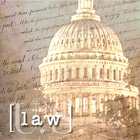
Fifth Amendment to the US Constitution: Sixth Amendment to the US Constitution: Eighth Amendment to the US Constitution: Ninth Amendment to the US Constitution: Tenth Amendment to the US Constitution: |
ALITO BREAKS TIE, SUPREME COURT RULES 5-4 TO UPHOLD KANSAS DEATH PENALTY STATUTE LAW MANDATES DEATH PENALTY IN CASES WHERE JURY FINDS DEFENSE EVIDENCE EQUALS PROSECUTION EVIDENCE IN WEIGHT 26 June 2006 New Supreme Court Justice Sam Alito broke the tie between the other 8 justices, leading to a 5-4 majority upholding Kansas' death penalty statute. The statute was challenged by a man sentenced to death under a statutory provision which causes sentencing to default to death when juries find convicted murderers are not among the worst offenders, some of whom will not face a death sentence. The state's supreme court had struck down the statute as unconstitutional, because it mandates the death penalty, even where jurors are convinced that defense evidence is equal to prosecution evidence in weight. This means, according to the interpretation of the petitioner and the Kansas supreme court, the law could require a sentence of death, even where the prosecution fails to prove that the case can legally be tried as a capital case. Justice Souter noted in his fervent dissent that previous rulings found the Kansas law "provides that in doubtful cases the jury must return a sentence of death", and that "the Eighth and Fourteenth Amendments cannot tolerate the infliction of a sentence of death under legal systems that permit this unique penalty to be ... wantonly and ... freakishly imposed". Souter called the Kansas law a "moral irrationality", finding that "In Kansas, when a jury applies the State’s own standards of relative culpability and cannot decide that a defendant is among the most culpable, the state law says that equivocal evidence is good enough and the defendant must die". The four dissenters, writing two separate dissents, were obviously concerned, as was the Kansas court, that the law required what would essentially be the arbitrary application of the death sentence, to cases where the prosecution was not able to meet what in other states would be its legal obligation. But the dissents carry no weight of law, and the majority opinion allows the law to stand. Observers criticized the majority for giving too much weight to amicus —friend of the court— briefs filed by 15 states' prosecutors, voicing concern that striking the Kansas law would raise the bar for winning a death sentence too high for the prosecution to reasonably reach. That criticism suggests, in principle, that the 5 justices of the majority ruled as they did for ideological reasons, in support of the easier-to-apply death penalty. But Justice Thomas' opinion, whatever its controversy or inconsistencies, appears to rely primarily on an interpretive legal logic: that the states have the authority to determine how their courts apply the death penalty, just as they have the authority to prohibit it. Under the Tenth Amendment to the United States Constitution, the last item in the Bill of Rights, "The powers not delegated to the United States by the Constitution, nor prohibited by it to the States, are reserved to the States respectively, or to the people." For many in the "strict constructionist" camp, this is a fundamental principle of constitutional law, and the absence of specific federal language constraining the right of the state of Kansas in this respect, is sufficient to permit the peculiarities of the Kansas statute. But, the Sixth Amendment specifically requires trial by "an impartial jury". The essence of the Marsh case —and a significant part of the reasoning behind the Kansas supreme court's ruling in Kansas v. Marsh, which the Thomas opinion now reverses— was that the Kansas statute unconstitutionally removed impartiality from the jury trial, forcing the court to assume a bias in favor of the death penalty. The Thomas opinion does not defend that bias, but rather denies that it exists. So, the court has not condoned any such rewriting of laws governing the judiciary or the fairness of jury trials, but the states' rights basis for this ruling does appear to open new territory in the direction of harsher mandatory sentencing. [s]
BACKGROUND: Judge Samuel Alito, by most accounts named to become Associate Justice on the Supreme Court for his so exceedingly surpassing the ill-fated Harriet Miers in judicial experience, has tried to stay clear of the privacy issue. That is because privacy is essential in the Roe v. Wade ruling. But now, newly released documents seem to show Alito has expressed a lack of support for other constitutional privacy rights. [Full Story] ROBERTS NAMED TO REPLACE O'CONNOR ON SUPREME COURT John Roberts, currently a judge on the DC Circuit Federal Court of Appeals, has been named by Pres. George W. Bush to replace retiring Supreme Court Justice Sandra Day O'Connor. Though some believe his nomination will be less contentious than other controversial "front-runners" discussed in recent days, liberals have criticized Roberts for his stance on abortion and on the separation of church and state, and he has been called "a corporatist"... [Full Story] |
||||||
|
|||||||
